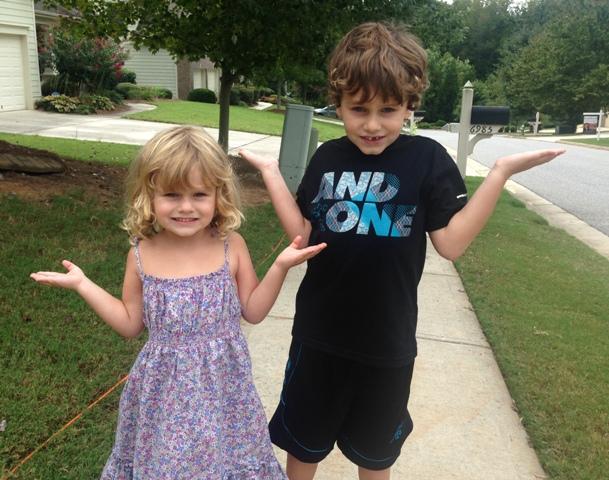Childhood Misconceptions
Kids are known for their creativity, but sometimes their imaginations lead them to the wrong conclusions.
September 8, 2015
Over the course of their childhood, many children believe untrue things, and these fallacies will eventually lead to bitter disappointment.
In elementary school, “stop, drop, and roll” is drilled into the heads of students, and many come to believe that catching on fire occurs much more often than it actually does. With how fiercely this lesson is taught, kids may come to the conclusion that, throughout life, they will be set aflame multiple times.
The myth of holiday creatures is another obvious misbelief. Their parents tell them that these beings exist to reward them for being good or to punish them for being naughty. Why are some these myths used to comfort kids? The idea of a large bearded man watching them at all times, once a year sneaking into their house, and leaving items based on their behavior should be a campfire story, not a reason to urge a child towards good behavior.
Children are told that milk comes from cows, so, from this statement, they come to the conclusion that chocolate milk must come from chocolate cows. Brown cows appear on most chocolate milk packages, so it is only logical that brown cows produce chocolate milk.
In the movie Peter Pan, Peter’s shadow detached from him and ran off on its own. Because of this, some kids believe their shadows and reflections are sentient beings. The children who believe this noticed that these effects of light have a human form, so they can only conclude that the reflections and shadows themselves have thoughts and feelings just like people. Some kids even take it so far as to converse with these replications of themselves, maybe even causing their parents to worry about their mental stability.
Eventually, children realize mythical creatures such as unicorns do not exist, and some accidently eradicate the more outlandish existing animals from their minds. When the reality of these animals is revealed to them, they begin to question everything else. This ultimately leads to much confusion between reality and fiction.
The movie High School Musical is a nostalgic classic for this generation of teenagers, and it gave the impression of high school being a joyful place where you can burst into song at any time. Younger children come to the conclusion that, in high school, seeing as homework and actual class time are rarely displayed in this movie, education is not the main focus. The dreams of stress-free, easily-achieved good grades are crushed when high school actually begins.
There are many possible outcomes of believing in such misconceptions. Some of these theories may cause the child in question stress, emotional turmoil, or great embarrassment later in life. On the other hand, they could create hilarious stories and inside jokes with family and friends. Whatever the case, it is always interesting to consider how children perceive the world.




